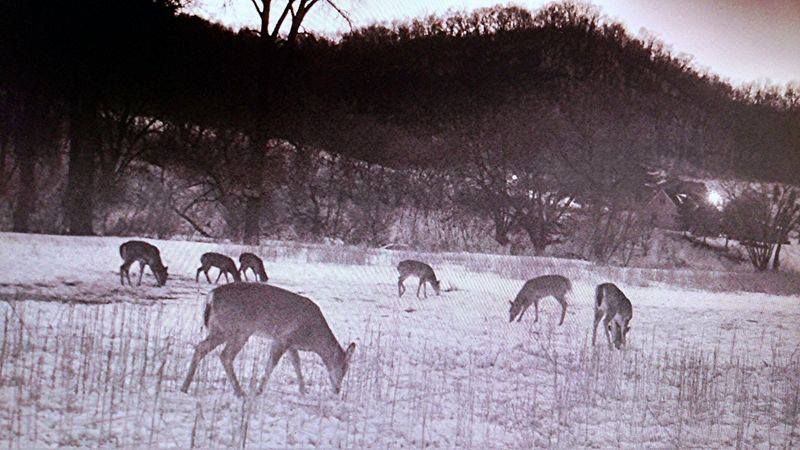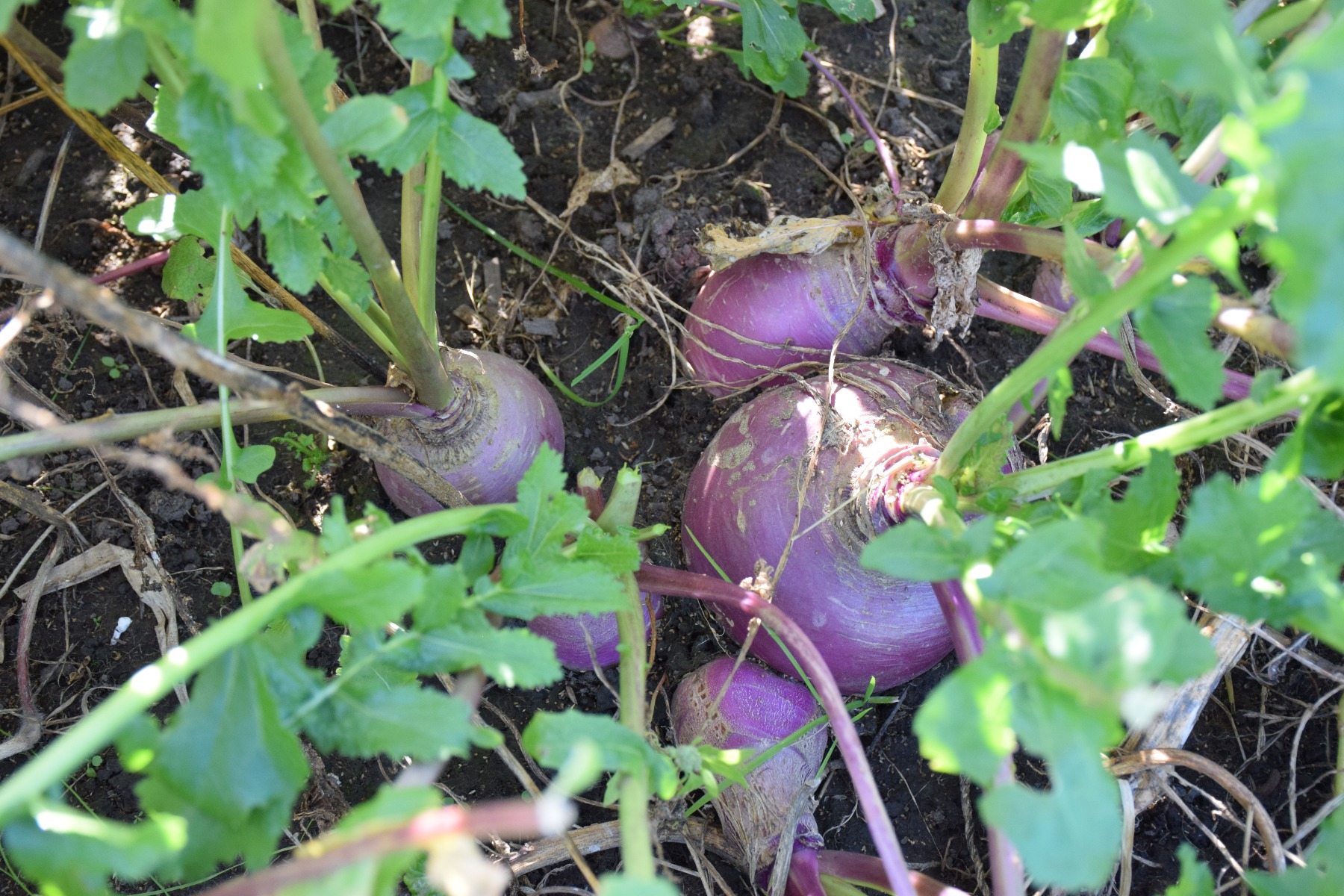Species Report
By: Deer Creek Seed
Purple Top Turnips are one of the most widely planted, highly nutritious food plot species grown. Turnips are part of a large family more commonly referred to as Brassicas. This plant family is known for its rapid cool season growth and high yields. The brassica family includes crops such as radish, kale, rutabaga, rapeseed, and broccoli. Like others in this vast family, turnips are a cool season annual and grow best during the cooler periods of the year.
Turnips are truly an amazing food plot plant. They are not only high in available protein and highly digestible; they can produce up to 6-8 tons of forage per acre! Like closely related forage radishes, purple top turnips are not affected by light frosts. In fact, turnip palatability increases after cold weather arrives because the young leaves are somewhat bitter at first but turn sweeter as they mature with cooler temperatures. Deer will preferentially eat both the leafy green tops and the big round roots over surrounding browse.
Some varieties of turnips produce more leaves than roots, whereas Purple Top Turnips are known more for their roots. ‘Purple Top’ comes from the fact that the shoulders of the round roots stick out above the soil line and turn purple, while the below ground root stays white. The protruding ‘Purple Tops’ are a boon for deer as they stick out above the ground allowing deer better access to graze not only on tops, but also the roots of the plants. Late into winter when all other food sources are gone deer will keep coming back for the turnip roots.
Purple Top Turnips can be grown alone or in a mixture and require minimal growing effort with excellent results. They are adaptable to a wide range of growing conditions, but prefer fertile, loamy soils with a pH range between 6.0 to 7.5. Beware, they do not grow well in heavy clay soils, wet, or poorly drained locations - especially at establishment. For turnip seeds to germinate, minimum soil temperatures must reach 45 degrees Fahrenheit. Under ideal growing conditions, they’ll grow very fast and can reach maturity in 50-80 days. For hunting season, plant late summer in the north or early fall in the south.
The recommended broadcast seeding rate is 10 lbs/acre, less if you seed in a mixture with other species. If seeded precisely, plants will grow quite large and can shade out other species in a mix. Reduce seeding rate of turnips to 2-5 lbs/acre when combining with other seeds. Keep in mind that turnip seed is quite small and a little bit goes along way. It is always best to not over seed, even when planting alone, as the plants will crowd each other, causing stunted growth. Because of their small size, turnip seed can be shallowly planted and can even be spread into an existing plot with little or no tillage. If broadcast seeded, it is always best to drag and or cultipack after planting to ensure good seed to soil contact and germination.
Turnips are moderate to heavy feeders. If your food plot has not been fertilized in a while, it may be best to consult with your local agricultural extension office to arrange for a soil test - or see our Soil Test Kit here. An all-purpose fertilizer (such as 12-12-12) can be applied at planting but for best results, conduct a soil test prior to applying any fertilizer for the best rate recommendations.

Purple Top Turnips in your food plots will not disappoint. They are easy to grow and mange, and provide a great crop for deer to browse throughout the fall hunting season and winter months. They are a great starter crop when first experimenting with food plots and are a wonderful addition to previously established plots that are thinning out. If you’re short on time or just want a “one-stop-shop” kind of plant, Purple Top Turnips are the way to go.



